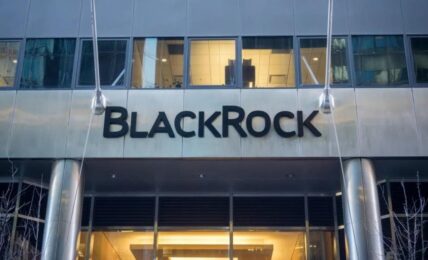Only around one in five of finance executives at large companies believe that they are well prepared to meet upcoming requirements to report and seek external assurance on climate-related risks and opportunities, even as the vast majority anticipate sustainability reporting requirements to increase over the next few years, and as more prepared executives are more likely to view sustainability as an opportunity for their companies, according to a new survey released by global professional services firm Accenture.
For the report, “From Compliance to Competitive Advantage,” Accenture surveyed 730 CFOs and senior finance executives at companies with more than $1 billion in revenues across 11 countries and 15 industries, and conducted a series of in-depth interviews with finance and sustainability executives.
Accenture noted that the report comes as sustainability-related regulation and legislation increases around the world, with a focus on areas including increasing market transparency around ESG risks and opportunities, such as the EU’s CSRD regulation and U.S. SEC’s climate disclosure rules, measures setting prices on the carbon content of imports, such as the EU’s CBAM, and initiatives to provide incentives and grants for specific sustainable activities, such as the U.S.’ Inflation Reduction Act and EU’s RePowerEU plan.
The survey indicated that the finance executives are feeling the pressure of the evolving regulatory landscape, with nearly 85% of respondents reporting that they expect an increase in mandatory disclosure over the next three years, and 90% agreeing that ESG issues will be a major focus for them over the next 5 years.
Additionally, more than 80% said that they feel pressure from at least three groups of stakeholders to take action on sustainability, with the most commonly cited stakeholders applying pressure including regulators, board members and shareholders.
While the finance executives are increasingly pressured on sustainability issues, however, the survey found that most do not yet feel ready to meet many of the new requirements, with only 22% of CFOs reporting well prepared to disclose on climate-related risks and opportunities and to seek external assurance on their disclosures, and only 10% feel well prepared to meet these reporting requirements in all sustainability areas such as resource use and circularity.
For the report, Accenture identified and assessed companies’ preparedness across 9 key sustainability capabilities across categories of ESG Measurement, ESG Management and Talent, including capabilities ranging from data management, quality and integration to transparency and integration on non-financial KPIs, ESG considerations in business decisions, and ESG skills in the finance team and finance skills in the sustainability team.
Across the 9 capabilities, the report found a wide variety of preparedness, assessing 12% of companies as weak on ESG measurement and management, 73% at a moderate level of preparedness, with some having automated ESG data capture and most moving closer to integration of ESG into their management systems, and 15% as having strong capabilities, gathering detailed ESG information, automatically monitoring quality, using ESG data to improve business decision making, using predictive analytics to identify potential ESG risks, and cultivating complementary skills within their finance and sustainability teams.
Notably, the study found a strong correlation between companies that are well prepared on ESG measurement and management and those that view sustainability as an area for opportunity and growth. The survey found, for example, that 68% of companies in the “weak” group reported a challenge in striking a balance between sustainability and profitable growth, compared to only 20% of the “strong” group, while “strong” companies were more than twice as likely (20%) to already consider sustainability as a significant value driver for their organizations than “weak” companies (9%).
In the report, Co-authors Stephanie Jamison, Global Resources Industry Practice Chair and Global Sustainability Services Lead, Jens Laue, Managing Director – Sustainability Services, ESG Measurement, Analytics and Performance Lead, and Michela Coppola Senior Manager – Accenture Research, CFO & Enterprise Value Research Lead, wrote:
“Companies that can transform ESG data into insights and embed them into business decisions are better able to identify sustainability-related opportunities, overcome barriers and in the end, generate more value through better decision-making.
“As our study findings show, CFOs who lead by example and approach this challenge by taking a strategic approach to building ESG measurement and management capabilities will likely build competitive advantage and accelerate their organization’s sustainability strategy.
Click here to access the survey.



